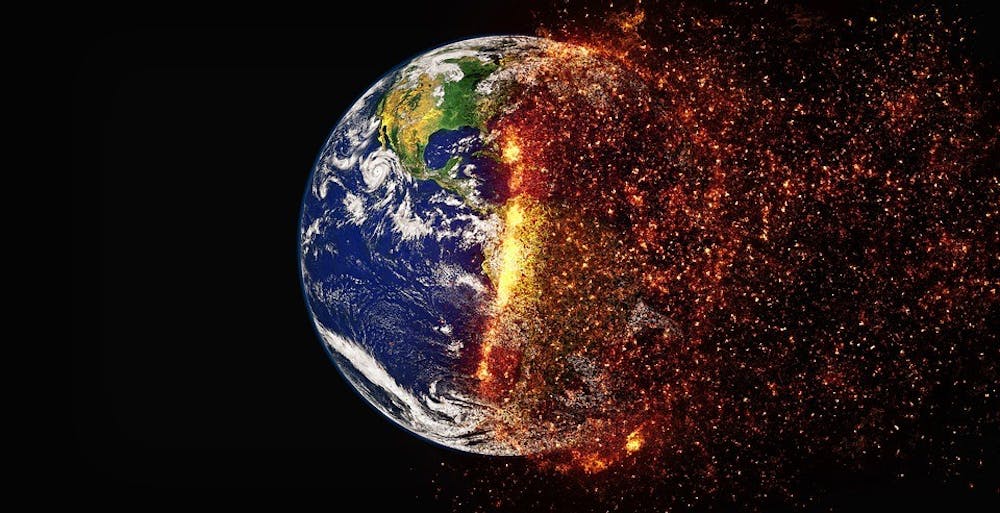Today, March 15, young people around the world are participating in strikes for climate action. We, along with others in the Princeton community, will be joining them. Princeton students have a determined history of environmental and energy action, working with the University to lead by example as a sustainability-oriented campus, and independently advocating for action beyond our campus. Students have worked at the town and state level on solutions aligned with the global goal of keeping temperature rise below 2º Celsius. Students have also sought to foster conversation across a range of environmental perspectives, giving rise to a range of green groups on campus such as the Princeton Student Climate Initiative, the Princeton Conservation Society, and the newly formed Princeton Environmental Activism Coalition.
We are striking together in Princeton to show solidarity with young people around the world and to make an emphatic demand for action. We strike for the planet, and we strike for our future. Today is about launching new dialogue on the urgency of action and communicating the importance of climate action to our generation. It is about intersectionality, because climate change costs and impacts vary across communities and will disproportionately affect ours and future generations.
The global movement is inspired by 16-year-old Swedish activist Greta Thunberg, who gained an international following last year for starting a school strike outside the Swedish Parliament in order to demand political action to reduce carbon emissions. At the UN Climate Summit, Thunberg told leaders that youth will not “beg the world leaders to care for our future” and that “change is coming whether they like it or not.”
Today, we must look beyond the environmental impacts of our personal choices to consider the responsibilities we have as a community of young people and as members of an academic institution. More importantly, we want to elevate our voices and reaffirm our role as change agents — as Princeton students, and as members and allies of front-line communities who disproportionately bear the brunt of climate change and its injustices. Although its impacts are felt by every person, members of disadvantaged communities worldwide bear the greatest burdens, despite contributing a disproportionately small amount to the problem.
While we are committed to working locally on enhancing sustainability and resiliency practices in our community, current projections indicate that local action must be complemented by national and international efforts to eliminate greenhouse gas emissions. The most recent United Nations climate change report indicates that we are running out of time to avert the gravest global consequences: it would take significant emissions cuts through 2030 to stay under 1.5º warming and would require a transition to a carbon-neutral planet by 2050 to stay under 2º warming. Understanding the science of climate change necessitates rapid, large-scale action in order to minimize risks from climate change.
We are already experiencing climate change, and we understand that impacts will worsen and compound if inaction persists. Hurricanes are becoming more extreme, as Hurricane Harvey’s deluge, for example, was made three times more likely and 15 percent more intense due to climate change. The past five years have been the five hottest years on record, and 2018 was one of the warmest on record for our oceans. We have lost much of the world’s coral reefs and face the possibility of losing the rest. Recent warnings have raised the spectre of mass extinctions, and many species are already in precipitous decline. Among all the frightening news, there is clear hope. We know what action is needed, and we know it is still possible to limit severe impacts of climate change — but only if we act quickly.
This is a historic moment where youth will reset the dialogue on climate change and assert the urgency of collective action. Our strike, and the thousands of other strikes in over 100 countries, is a call to action for young people and a recognition of the power we have to enact change. Whether you are able to strike for climate action today, there will be many ways to contribute going forward. Have conversations with friends and family about the unequivocal science of climate change and talk about solutions. Climate change is too serious to be ignored. So join the conversation, and let’s talk climate.
Lisa Sheridan is a senior from Northern Ireland, studying ecology and evolutionary biology. She can be reached at lmas@princeton.edu.

Nourhan Ibrahim is a junior from Parsippany, N.J., studying ecology and evolutionary biology. She can be reached at nsi@princeton.edu.
Jeremy Zullow is an alumnus of the Wilson School from Marlboro, N.J. He can be reached at jzullow@princeton.edu.
Princeton Climate Strike sponsored by
Princeton Environmental Activism Coalition

Princeton Muslim Advocates for Social Justice
Princeton Student Climate Initiative








